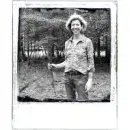
Fiona Mary Watt
Dr. Fiona Mary Watt is the Director at the Centre for Stem Cells and Regenerative Medicine at King’s College London. Watt finished her thesis research in record time. It was the late 1970s, and Watt had joined the lab of Henry Harris at Oxford University. She was tasked with collaborating with a partner lab to determine whether cancer cells had microtubules. Watt says, “It took me two weeks to show that cancer cells did indeed have microtubules. When I got back to Oxford, Professor Harris said, ‘Well, that’s very good. Now you can amuse yourself for the next two and a half years.’ That’s what I did.” Thirty years later, Watt is still at it—amusing herself with studies aimed at understanding the molecular basis of what she considers the most intellectually exciting games in town: cancer and differentiation. Her research focuses in on these themes by studying the on role of stem cells in adult tissue maintenance. Watt has made several milestone contributions in this area, including: (1) determining that adhesion regulates differentiation and tissue assembly in mammalian epidermis and elucidating key pathways that govern this process; (2) identifying molecules the regulate exit from the stem cell compartment in epidermis; (3) showing that integrins on the cell surface of skin epithelia can be active or inactive, and that stem-cell enriched samples could be obtained by treating with integrin antibodies; and (4) discovering that nondividing, differentiated cells can contribute to the formation of benign tumors in skin. During her time as editor of Journal of Cell Science, Watt also initiated a series of interviews focused on recording the role and experiences of women in science – a highly important contribution given the prejudice women continue to face in the sciences. Watt has received several awards for her research including the William Montagna Award, the Centre de Recherches et d’Investigation Epidermiques et Sensorielles Research Award, the FEDERA Award, and the Ebling Award. In addition to her AAAS membership, Watt is a member of the Academia Europaea, the Royal Society, the Academy of Medical Sciences, and the European Molecular Biology Organization. Her publications appear in Cell, Development, Nature Materials, Science, and other premier journals.